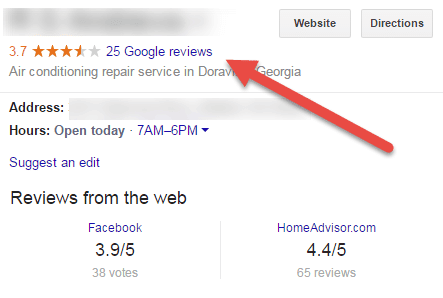Improve Your Small Business Presence: 10 Quick SEO Tips for 2024
Do you want to increase brand awareness and website traffic? Find out the top SEO strategies for small business owners looking to expand and grow.

Are you having trouble getting potential clients to visit your small company website?
SEO has a significant impact. Still, about 50% of small business owners choose not to make any investments in it. Perhaps you are one of them.
However, things don’t have to be this way. An effective SEO strategy can transform your website from an online jewel to a popular destination.
We’ll provide you with doable SEO pointers and recommendations that you can put into practice right now to improve your website and draw in more visitors tomorrow.
In what ways does SEO benefit small businesses?
No matter the size of the company, SEO (Search Engine Optimization) is crucial. It’s what makes your website appear in relevant Google and Bing search results.
Having your pages appear in search engine results increases traffic and draws in new users. With the correct strategies, you can simply increase site traffic and create an SEO content strategy using AI.
Local SEO as opposed to small business SEO
If you own a small business, you probably already know about local and small business SEO.
They are indeed different, as you may have wondered.
Optimizing a website for more general search terms associated with the company’s goods or services is the aim of small business search engine optimization. In essence, you are reaching out to anyone who is interested in what you have to offer, regardless of where they reside, rather than just locals.
The goal of local SEO is to draw clients from a particular location. You’re putting your company in front of prospective clients in your city or neighborhood.
10 Quick SEO Tips for small business
1. Initiate an SEO Assessment
Embarking on an SEO audit might sound daunting, but it forms the cornerstone of a robust SEO strategy. Numerous tools are at your disposal for conducting an audit, and one such effective tool is Semrush—a comprehensive digital marketing toolkit. Within Semrush, the SEO audit tool facilitates the identification and resolution of on-page and off-page SEO issues, backlink analysis, competitor evaluation, and more.
Leverage Semrush’s Site Audit tool to swiftly examine your website for over 130 prevalent SEO concerns, including broken links, duplicate content, and missing meta descriptions. The tool provides an overall site health score along with a detailed list of issues that require attention.
Simply generate a report and methodically address the prioritized top issues to optimize your website’s SEO health.
2. Identify Relevant Keywords
The next crucial step involves selecting target keywords for your online presence. The objective is to pinpoint search terms that your target audience frequently uses when searching for products or services similar to yours. Incorporating these specific phrases into your website content enhances the likelihood of securing a place on the coveted first page of search engine result pages (SERPs).
Here’s a systematic approach to discovering pertinent keywords for your business:
- Identify your niche: Clearly state what makes your company unique. Knowing your specialization will make your keyword research more efficient, whether your offering is handmade candles with distinctive scents or consulting services for eco-friendly home renovations.
- Consider your target audience: Consider the Google searches that prospective clients would do to learn about your products. Make a list of possible search terms using this knowledge.
- Make use of keyword research resources: Use essential resources like as Ahrefs, Moz, or Semrush. These resources provide information on search volumes, degrees of competition, and even suggest relevant phrases that you might not have thought of.
- Research competitor keyword phrases: Look into the terms that your rivals are using. SEO technologies are able to closely examine rival websites and identify keywords that are already bringing visitors to those websites.
- Think about long-tail keywords: Explore longer, more precise phrases with less competition. As an illustration, the long-tail keyword “vegan bakery in downtown Brooklyn” may have less competition than the more general term “Brooklyn bakery.”
- Review and improve frequently: SEO is a continuous effort. To make sure your chosen keywords are still relevant and successful, periodically review and improve them.
If this sounds time-consuming, consider collaborating with an SEO specialist on MinuteServiceMarketplace today to discover the most fitting keywords for your business.
3. Enhance the Performance of Your Revenue Pages
Your money pages serve as the primary web pages on your site responsible for generating income. Typically, these pages include product pages, service pages, or lead-generating landing pages where visitors can take actions leading to revenue. The ultimate goal of money pages is to convert visitors into customers.
Imagine you run a photography studio specializing in event coverage. Your revenue pages might include:
- Event Photography Portfolio showcasing your work
- Pricing Page detailing your service packages
- Contact Page for inquiries and bookings
Each of these pages requires careful optimization. For instance, your Event Photography Portfolio should feature captivating visuals, accompanied by SEO-friendly descriptions containing relevant keywords such as “event photography services” or “professional event coverage.” This not only helps search engines understand your content but also improves your ranking.
However, optimization isn’t solely for search engines; it’s equally crucial for your potential clients. Craft compelling and persuasive content on your pricing page, emphasizing the value of your services. Use high-quality images and ensure an intuitive layout to provide a seamless experience for visitors interested in hiring your photography services.
4. Start a Blog
For small businesses, having a blog is crucial for good SEO. But it’s not just about putting up random posts. The real key to success is creating fantastic content. This not only boosts your website’s visibility but also establishes you as an expert in your field.
Popular website platforms like WordPress and Squarespace make it easy to add a blog. Armed with your chosen keywords, you can craft engaging, detailed, and relevant content that captivates your readers.
If writing isn’t your thing, you can always hire a professional article writer on MinuteServiceMarketplace, like Jack P, who can create content based on your keywords and offer readers useful tips.
Make sure to sprinkle your keywords strategically throughout the blog, including in the title, headings, meta description, and within the article itself. But always remember, the quality of your content and the experience for your readers should be your top priority.
5. Set Up a Google Business Profile
A Google Business Profile, formerly called Google My Business, gives you more control over your online visibility on Google’s search engine and applications like Google Maps. You can fill out a profile with all the pertinent information, including your company name, address, contact information, hours, and services offered.
Imagine you own a fitness studio named ‘Active Wellness.’ A well-optimized Google Business Profile, showcasing your location, operating hours, and client reviews, can elevate Active Wellness to the forefront of local search results when someone nearby searches for ‘fitness classes near me’ on Google.
To create your Google Business Profile:
- Sign in to your Google Account on your computer.
- Go to the profile creation page.
- Enter your business name and select your category.
- Specify whether your business has a physical location.
- Define your service area for local businesses.
- Provide your phone number and website URL.
- Complete the setup and finish.
Note: Google mandates a verification process, commonly through postcard verification. They’ll send a postcard with a verification code to your business address, usually arriving within 5-14 days. Enter the code in your Google Business Profile to complete the verification.

6. Generate backlinks
Backlinks, or connections between websites, are essential to search engine optimization. Although you may still do SEO without them, backlinks are seen by search engines like Google as a sign of trust.
On search engine results pages, a website with high-quality backlinks typically appears higher (SERPs). It’s important to remember that not every backlink is created equal. Links from authoritative, respectable websites are given more weight than links from spammy, low-quality websites.
So how do you build these important backlinks?
- High-quality content: Provide insightful and worthwhile writing that others will want to link to. Spend time and money producing excellent content, such as comprehensive manuals, studies, or polls.
- Guest blogging: Offer to write guest posts for other websites in your field as a way to collaborate with them.
- Make use of social media: To increase visibility, share your content on social media sites. The possibility that someone may deem your work valuable enough to link to increases with increased exposure.
- Use SEO tools: Ahrefs and Semrush are two examples of tools that can be used to find possible backlink opportunities. They let you target sources that are similar to your competitors’ sources of backlinks.
Building backlinks can be challenging. If you need assistance, consider hiring the services of a link-building specialist on MinuteServiceMarketplace today.
7. Encourage client testimonials
Consumer feedback is incredibly useful to your company since it greatly influences consumer decisions and functions as the digital version of word-of-mouth advertising. According to recent statistics, about 50% of consumers place an equal amount of trust in internet evaluations and personal recommendations.
Make good use of tools such as Mention or Google Alerts to manage your reviews. With the help of these tools, you can remain informed, reply to reviews quickly, and spot any persistent problems in your company that need to be fixed.

8. Establish Online Citations
Online citations, which consist of your business’s Name, Address, and Phone number (NAP), play a crucial role in signaling legitimacy to search engines. When search engines detect consistent citations across various platforms, they view your business as more credible.
Consumers encounter these citations on diverse platforms, ranging from business directories to social networks and apps. Given that 51% of global shoppers start their purchasing journey on Google, maintaining accurate and updated business listings is paramount.
Consider this example of an online citation for a New York-based business, Urban Eats, on the local Chamber of Commerce website. Business listings not only contribute to relevant links for your website but also enhance your visibility on Google.
Begin by listing your business on:
- Google Business Profile
- Bing Places for Business
- Yelp
- Apple Maps
- TripAdvisor
Explore niche directories relevant to your business type. For instance, a photography studio might benefit from listings on The Knot or WeddingWire, while a home improvement business could consider Angi or HomeAdvisor.
Building citations is an ongoing effort. Continuously seek new opportunities to list your business and maintain consistency with your NAP details.
9. Make Use of Social Media
Having a strong social media presence helps your site’s SEO even though Google doesn’t utilize social media signals directly for rankings. A strong social media presence can raise search engine results, increase website traffic, and strengthen brand recognition.
However, it goes beyond simply creating material on every social networking channel. The CMO of Reading With Rik, Ashley R. Cummings, says it’s critical to know where your target audience spends their time. Sites like Instagram or TikTok could be useful for businesses that sell to consumers directly.
After you are aware of the platforms that your audience prefers, concentrate on producing engaging content that inspires and informs. This increased, qualified traffic sends positive signals to Google’s algorithm, potentially boosting your page rankings.
10. Create a User-Friendly Website
Think of your website like a restaurant. If it’s confusing, hard to navigate, and lacks valuable content, visitors might leave and never return.
A user-friendly website is key to online success. It means having a site that’s easy to navigate, looks good, and has valuable content.
Picture a website that works well on mobile, is easy to use, and has clear information. When visitors find what they need, they’re more likely to stay, explore more pages, and possibly become customers – all positive signs for search engines.
Here’s how to make your website user-friendly:
- Simple navigation: Have a clear menu, easy-to-find buttons, and an organized layout.
- Fast site speed: Use tools like Google PageSpeed Insights to check and improve your website’s speed.
- Mobile-friendly: Ensure your site works well on mobile devices using Google’s Mobile-Friendly Test.
- Follow on-page SEO tips: Use clean URLs, add descriptive text for images, and use links wisely.
- Technical SEO: Add schema markup to help search engines understand your site better. Create an XML sitemap and fix any 404 errors.
If technical SEO sounds complex, consider hiring a specialist on MinuteServiceMarketplace for help.
Conclusion:
The key to SEO is understanding your target audience. “It’s best to deeply understand who your ideal customer is and how they shop or purchase online,” says Shopify SEO consultant Adam Rogers. There are many publications out there that claim to have the greatest sales or marketing strategies, but they might not be appropriate for your company or your target market.
He continues, “That’s because online purchases are made differently by people of different ages, locations, and even product types. Sure, give them everything a try, but only use the strategies that produce the desired results based on your company’s data. Do you want to raise your search engine ranking but lack the time or energy to do so? Hire an SEO specialist on MinuteServiceMarketplace right now to propel your company to the top of Google search results.


Leave Your Comment